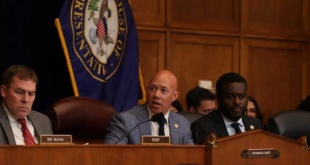KABUL — The Trump administration has abruptly cut U.S. funding for United Nations World Food Program (WFP) operations in Afghanistan, sparking urgent warnings from aid agencies and fears of widespread suffering in a country already reeling from poverty, conflict, and climate-induced food insecurity.
According to documents reviewed by CNN and officials who spoke on condition of anonymity, the U.S. Agency for International Development (USAID) has terminated contracts worth over $560 million in humanitarian support for Afghanistan. The cuts include funding for emergency food assistance, medical care, clean water initiatives, and mental health services for survivors of violence.
The decision, made at the direction of Jeremy Lewin—an appointee in Elon Musk’s Department of Government Efficiency—was communicated to implementing partners in recent days. Termination letters cited the cancellations were made “for the convenience of the US Government.”
The World Food Program, the world’s largest provider of humanitarian food assistance, condemned the move in a statement posted on social media platform X, warning it could be a “death sentence for millions of people facing extreme hunger and starvation.” The agency said it is urging the Trump administration to reconsider and continue supporting life-saving efforts.
Among the most impacted are internally displaced families and malnourished children, already facing a worsening humanitarian crisis under the Taliban-led government. With international aid having dwindled since the Taliban takeover in 2021, WFP programs funded by the U.S. remained a critical lifeline for millions.
Also affected is a high-profile education program that had enabled young Afghan women to study abroad, offering a rare opportunity amid Taliban restrictions on female education. Funding for the initiative, administered by Texas A&M University, was pulled last Friday, placing dozens of women at risk of being sent back to Afghanistan, where their futures—and safety—are uncertain.
“The loss of this program could be devastating,” said an administrator affiliated with the project, speaking anonymously due to the sensitivity of the issue. “Many of these young women now face the reality of returning to a country where their right to learn, to live freely, is denied.”
The cuts are part of a broader rollback of USAID programs across 13 countries, including Yemen, Syria, and Somalia. But for Afghanistan—where nearly half the population faces acute food insecurity, according to the UN—the impact could be uniquely catastrophic.
In 2024, the U.S. contributed nearly $4.5 billion to the WFP globally, accounting for almost half of the agency’s total budget. With the U.S. pulling back, humanitarian organizations fear a cascading effect on other donors and a dramatic shortfall in aid delivery.
Former USAID officials say the cuts reverse long-standing bipartisan commitments to support vulnerable populations. “This is more than a policy shift—it’s a moral failure,” said one former official. “Afghan families who have endured decades of war and instability are now being told they’re on their own.”
There was no immediate comment from the U.S. State Department. Secretary of State Marco Rubio had previously pledged to protect emergency food programs from budget slashes, a promise now in question.
Cindy McCain, Executive Director of the WFP, said the decision “undermines global stability,” warning that cutting off aid in fragile regions like Afghanistan could drive displacement, exacerbate conflict, and fuel extremism.
As Afghanistan braces for what many are calling a “humanitarian cliff,” the international community watches closely. Aid workers say that without a swift policy reversal, the human toll will be steep—and irreversible.
 Afghanistan Times
Afghanistan Times




